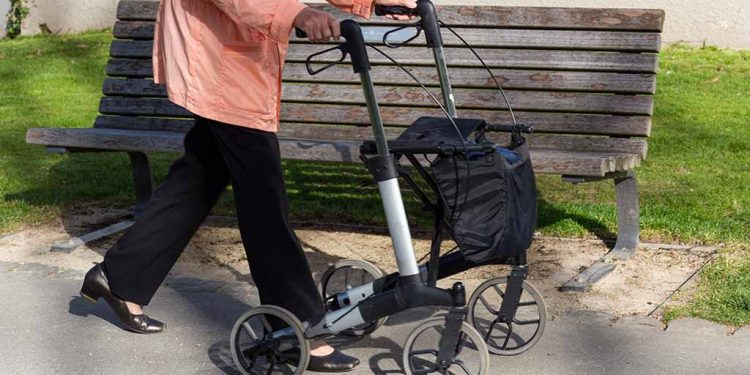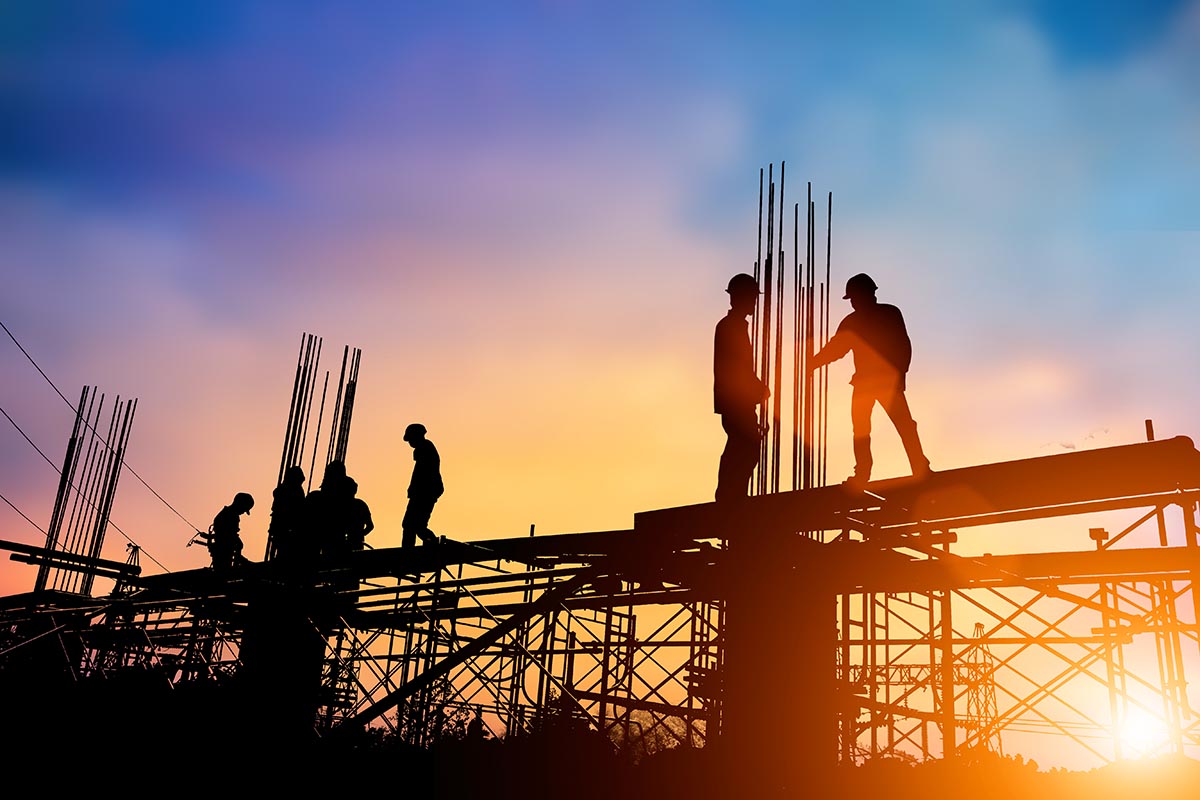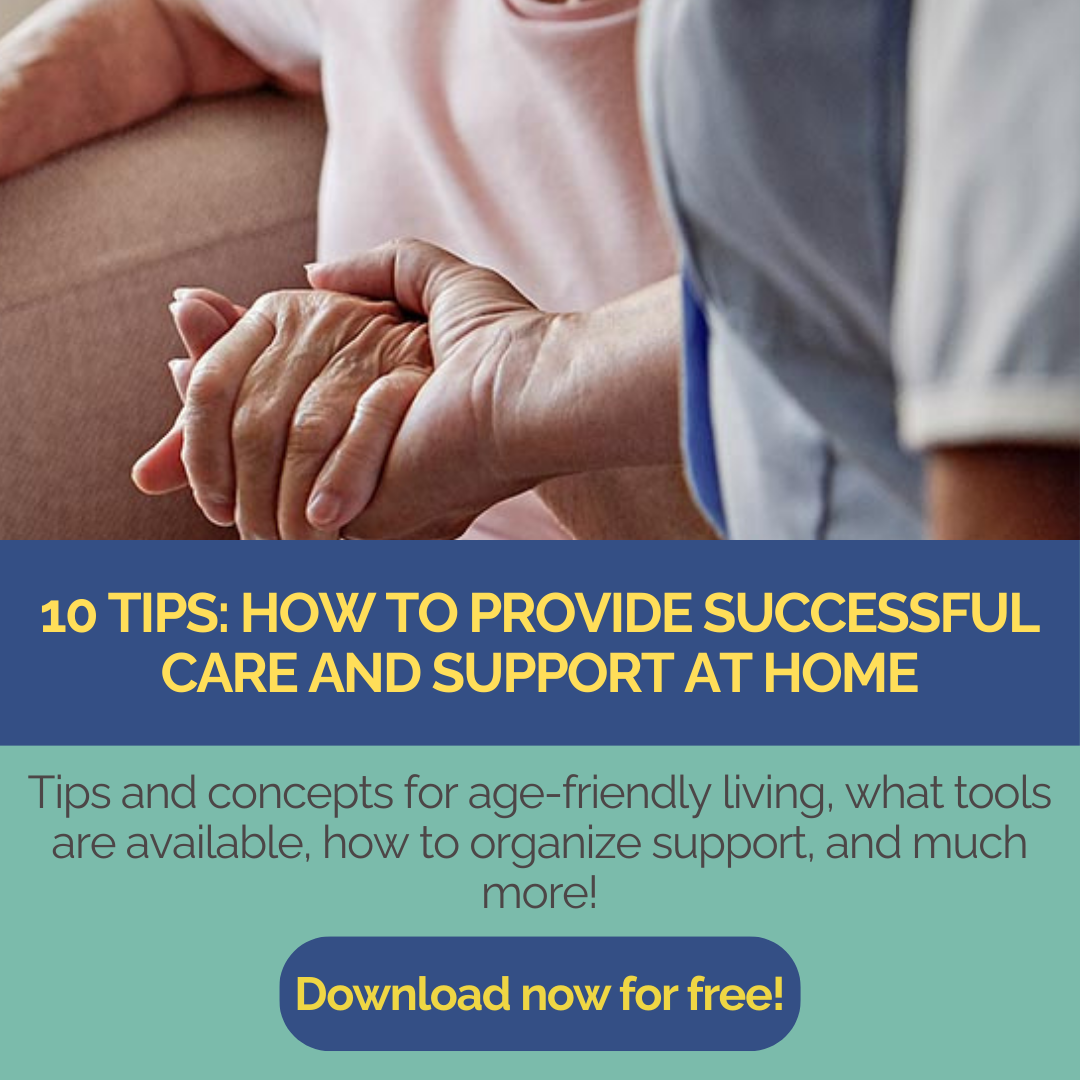Dieser Beitrag ist auch verfügbar auf:
Deutsch
Quality of life in old age: How can I manage it?
Have you ever cared for someone or supported them in old age?
I ask because this situation changes many things—often faster than one would like. Suddenly, it is no longer about “sometime in the future,” but about now: About safety, about everyday life, about how life at home can continue.
I myself have been in this situation several times in the course of my life – and as the editor of this platform, I am not writing to you from a distance, but from experience. People get older, sometimes illness comes along. The body no longer keeps up as it used to. Movements become more cautious, distances become shorter, processes become slower. And suddenly the home that was taken for granted for years is full of stumbling blocks.
What used to be no problem is now a challenge: a step at the entrance. A threshold of just a few centimeters. A carpet that has always been there. The handle in the shower. Getting up at night. Things that you didn’t even notice before can suddenly become dangerous – and the feeling of safety crumbles.
If people want to live at home for as long as possible, new solutions and sometimes new approaches are needed. But this is where the next hurdle begins for many: How do you find the right solutions – and where can you find them, and who can you trust?
Because even if you click through the Internet: Googling is often frustrating. Too much advertising, too little classification. Unclear terms. Contradictory recommendations. And in the meantime, everyday life goes on – with little time, little sleep and the constant worry of overlooking something important.
Why SmartBuildingsCompass exists
In my work as a management consultant, I have repeatedly come across assistance solutions and concepts that are simply not visible enough. Not because they are bad – but because no one explains them clearly, no one classifies them, no one brings them to the people who really need them.
And when I started to systematically research the topic, I realized the extent of it: we are heading towards a care crisis in many countries. Not at some point – but right now. There is a lack of structures, staff and relief. And as a society, we too often act as if this can be solved with “a little optimization”. The opposite is the case: we are moving at high speed towards a wall.
What we need instead is orientation, visibility and pragmatic solutions that work in everyday life – for those affected, for family caregivers and for everyone who provides support.
That’s exactly what I’m working on with SmartBuildingsCompass: so that you can find what helps more quickly – and don’t have to fight your way through a confusing market on your own in an already stressful situation.
The painful truth is that, given the multiple crises facing governments and the chronic lack of funding in professional care structures, we will have to help ourselves.
After all, demographic change is no longer abstract: with the baby boomers, a generation with a particularly high birth rate is retiring. At the same time, thanks to better medical care, many families still have parents who need care and support themselves. Many people are therefore caught between two responsibilities: Their own everyday lives and caring for the next generation.
The need for support is therefore enormous. And it comes up against a reality that is becoming increasingly tangible: There is a shortage of skilled staff – and not enough will follow. Some of the care staff themselves will be retiring in the coming years. At the same time, the number of people who need help is growing. It will not be possible to close this gap “somehow” – at least not to an extent that even comes close to covering the demand.
What this means in everyday life is clear: in future, care and support will shift even more to the home. Not because this is always the best solution, but because in many cases it will be the only realistic option – supported by relatives, neighbors and professional services, which are becoming increasingly scarce.
This is precisely why we need more guidance, concepts that are suitable for everyday use and solutions that really take the pressure off at home – and don’t just sound good on paper.
Senior living: A necessary topic
Here are a few more figures that show why the topic of care is affecting us all more and more – often faster than we think.
In Germany, the number of people in need of care could rise from around 2.5 million to around 3.5 million by 2030. At the same time – depending on the calculation – there will be a shortage of tens of thousands of care workers in the next few years; by 2034, this gap could widen to several hundred thousand people.
The trend is also clearly noticeable in Austria: at the beginning of 2025, there were around 1.86 million people aged 65 and over. And here, too, it is assumed that additional nursing staff will be needed by 2030 in order to provide care at all. Even if enough staff were available, there is another pressure factor: a lack of money – and therefore the question of what can realistically be financed.
What does that mean in everyday life? Care and support are increasingly shifting to the family. Many relatives are taking on tasks that were previously often cushioned by local structures. This not only increases the organizational demands, but also the financial and emotional burden – often quietly, often on the side, often without any real breaks.
The care crisis is here – and now?
Other countries have already responded to this. In Denmark and Sweden, smart helpers and assistance technologies (“Welfare Technology”) have been used both in the healthcare system and at home for years – not as a gimmick, but as a pragmatic response to dwindling resources. I went on an innovation trip to see for myself: they have understood that support needs to come to people’s homes – and have consistently expanded the outpatient sector.
And this is precisely where we have a core problem: many solutions and concepts have existed for a long time – but they are not visible enough and are too difficult to find. We want to change that: With orientation, classification and better access to support options that are suitable for everyday use.

If you have any questions, feedback or requests regarding our reporting, please get in touch with me at anja@sbc.co.at.
And here you have the opportunity to tell us about your biggest challenges in our survey. This helps us to address the right topics on this platform.
Sincerely,
Mag. (FH) Anja Herberth
Editor
Author: Anja Herberth
Chefredakteurin











